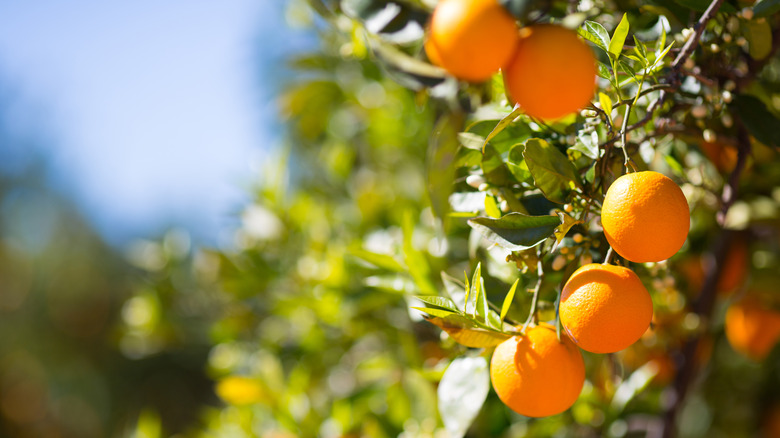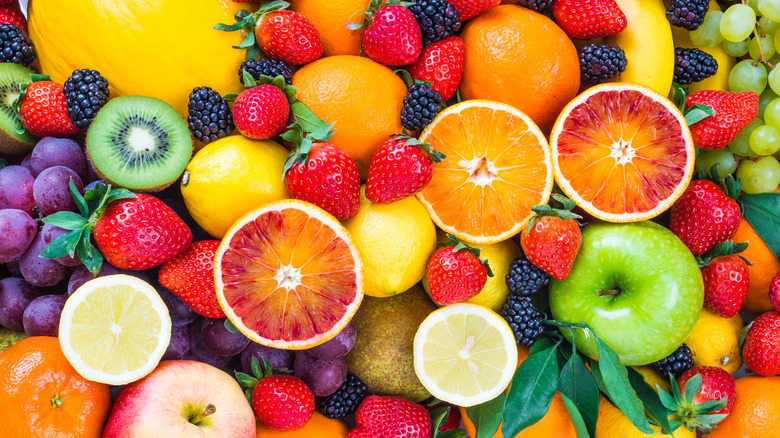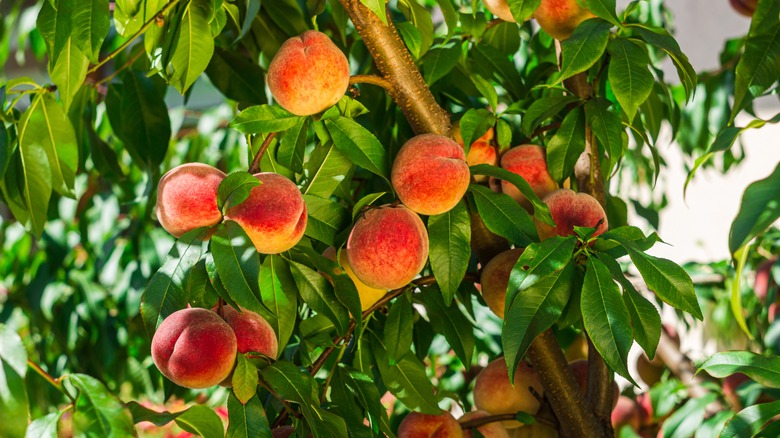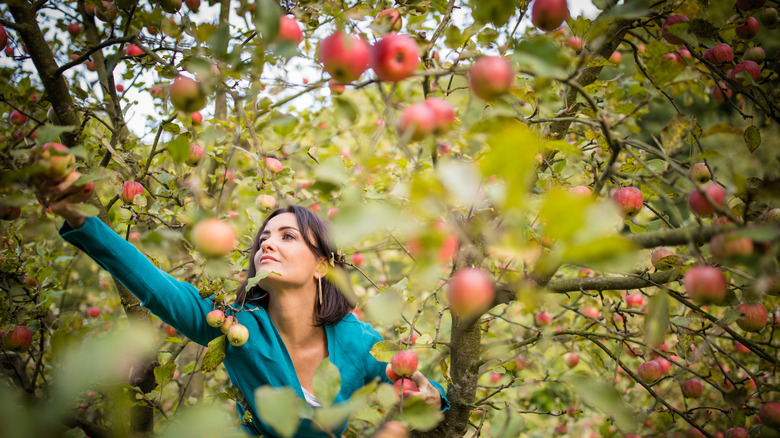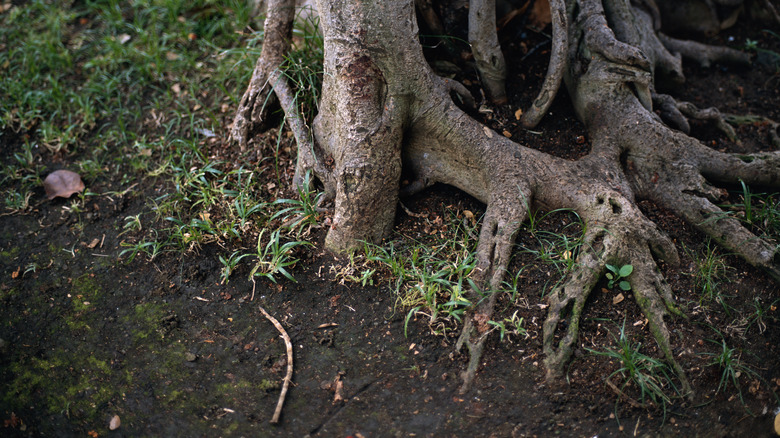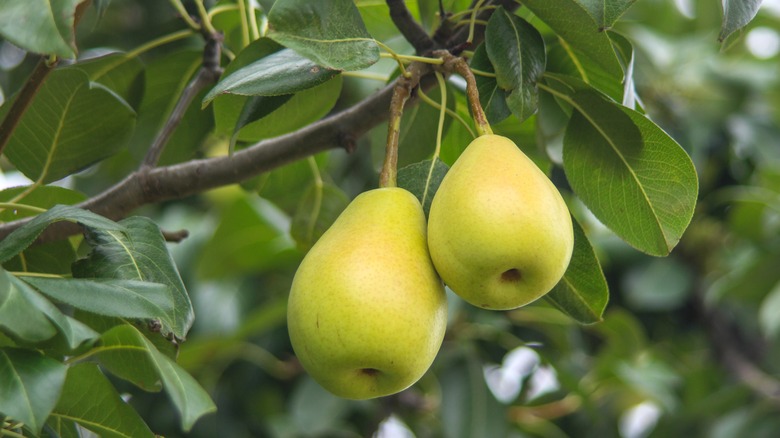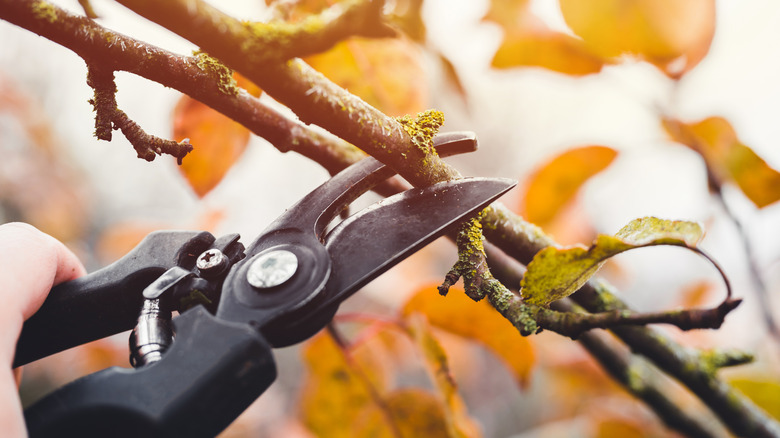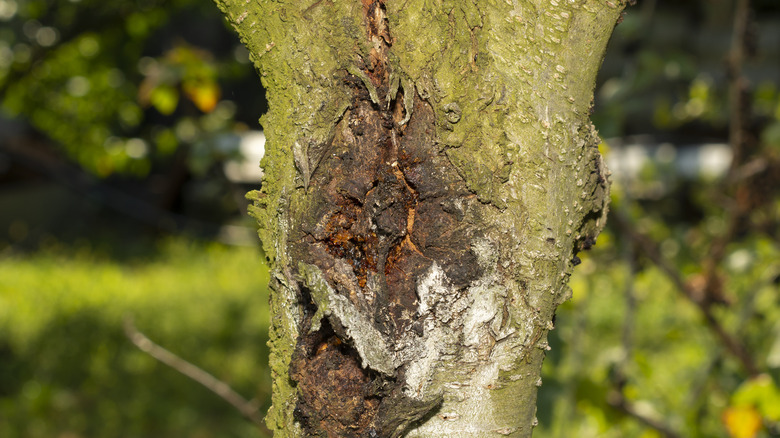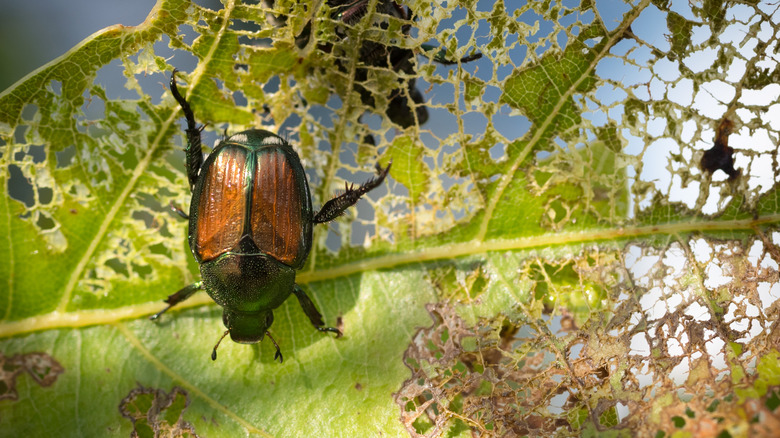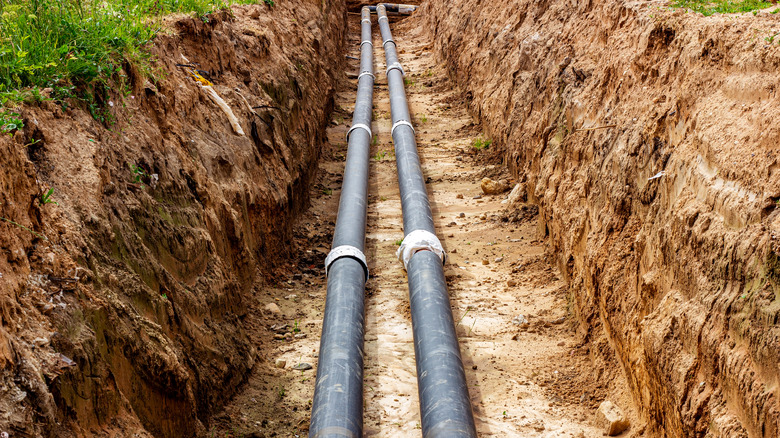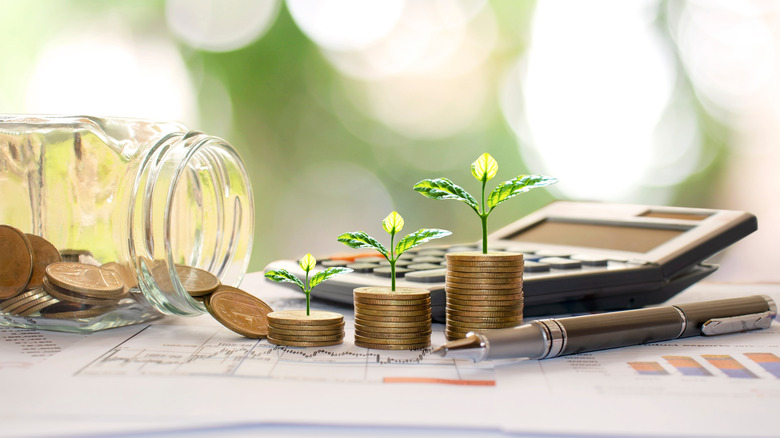10 Things To Consider Before Planting A Fruit Tree In Your Backyard
There are plenty of plants that you could consider if you're looking to add more life to your backyard. There are fragrant flowering vines and stunning ornamental grasses, as well as roots that grow into veggies and shrubs that produce berries. However, if you want something that's truly special, then you might want to opt for a fruit tree.
Trees that grow fruit are not only gorgeous but they also have an obvious payoff, according to the Arbor Day Foundation. Along with the fact that you'll end up with a source of healthy snacks right in your own yard, you won't have to spend as much money on fruit when you're growing your own. On top of that, you might find that the fruit that comes from your tree tastes even better than what you can buy from the store. You also have plenty of options when it comes to what kind of fruit tree — or multiple trees if you want to end up with a mini-orchard — that you could end up growing. For instance, you might be interested in having a Red Delicious apple tree or a Methley plum tree. You may also like the idea of picking fruit from a Hale-Haven peach tree or a Hood pear tree.
Of course, before you go ahead and start picking out what kind of fruit tree you want to plant in your backyard, you need to consider the following important factors that can help you make the right choice.
1. What fruit do you eat?
While you can always give away the fruit that you'll hopefully end up growing with the help of your backyard tree — we're sure your friends, family, and neighbors would appreciate the gift of apples, oranges, or cherries — it might be a good idea to choose something that produces fruit that you'll actually eat. That's why you should think about what kind of fruit you already tend to snack on and then add those trees to your list of potential options for your yard.
2. What trees suit your area?
You'll also need to ensure that the tree you choose will suit both your area and yard. First, check to see what kind of fruit trees can thrive in the weather and seasonal conditions in your city. Next, find out what kind of trees will suit your yard when it comes to the soil that's present, the amount of sun or shade it might get, and the moisture that's in the ground. Beyond that, some trees do better when there are trees of the same variety in the neighborhood to help with cross-pollination.
3. How big will it get?
While some fruit trees stay rather short and relatively narrow, others can be both tall and wide. Before you start buying up trees, you'll want to find out how big they can end up being as they grow. If there are wires, roofs, or anything else above your backyard, then you won't want a tree to grow to a height that will interfere with them. At the same time, if the tree will grow large branches, then you'll want to make sure to give them enough room to stretch out in all directions.
4. What about the roots?
The trunk and branches aren't the only part of your fruit tree that will continue to grow as the sizable plant matures. Although you won't be able to see what's happening underground, the roots will extend out into your yard in order to stabilize and nurture the tree. In the same way that branches need enough room to grow, so do the roots. Be sure that they won't end up growing into the base of your fence, deck, or even worse, the foundation of your home.
5. How long until it fruits?
If you're interested in having a fruit tree in your backyard, then you clearly want to enjoy the edible benefits. However, not all trees will start growing fruit right away. In fact, while some varieties will begin producing as soon as they're mature, others can take anywhere from five to 15 years after a seed has been plated to start growing fruit, according to New Mexico State University. Of course, biding your time until fruit starts popping up on your tree may not be easy but it will surely be worth the wait.
6. What care will it need?
Some fruit trees will pretty much take care of themselves if you plant them in an ideal spot in your backyard where they can enjoy plenty of sun, rain, and space to grow. On the other hand, other trees require a little more TLC. Before you choose a variety for your yard, look into how much care a tree might need — such as pruning branches, removing rotten fruit, and adding mulch around its base — and figure out whether or not you have the time, budget, and energy to keep up the needed maintenance.
7. Can the tree get diseases?
Unfortunately, just like other living creatures including plants, trees can get sick and even suffer from diseases. Although some of these nasty issues can be resolved with proper care and perhaps professional treatment, other ailments may cause your tree to lose branches, fail to grow fruit, or completely destroy your tree as well as potentially infect other trees near it. That's why you'll not only want to know what diseases each kind of tree can deal with, but also what diseases might already be causing issues in your area.
8. Will it attract critters?
Another bonus of having a fruit tree in your backyard is that it can attract adorable critters. You may find that birds build nests in your tree while butterflies and bumblebees might stop by for a sweet snack. At the same time, other critters might be interested in your trees, such as rodents, bats, and annoying bugs including ants and wasps. Beyond that, some trees can end up harboring beetles that will quickly multiply while making a meal of the leaves, and stealthy squirrels might make it their mission to steal your fruit.
9. Have you checked the ground?
It's totally understandable if you're eager to pick out a spot for your new fruit tree and start digging a hole to prepare for your backyard addition. However, before you grab a shovel, you need to check the ground. Some yards will have pipes beneath the surface as well as wires and cables. Accidentally chopping through a wire or cracking a pipe with your shovel could cause some serious (and pricey) damage. To avoid this, you can probe the ground yourself or bring a professional in to see what's potentially beneath the surface.
10. How much will it cost?
There are quite a few factors that will play into the final cost of the fruit tree that you choose. First, there are certain rare or delicate varieties that will cost more simply because they're harder to come by or to care for. On top of that, trees that are more mature will cost more than trees that are younger and smaller. Of course, seeds will be the cheapest option but will require more time and effort to grow them into a fruit-producing focal point in your backyard.
